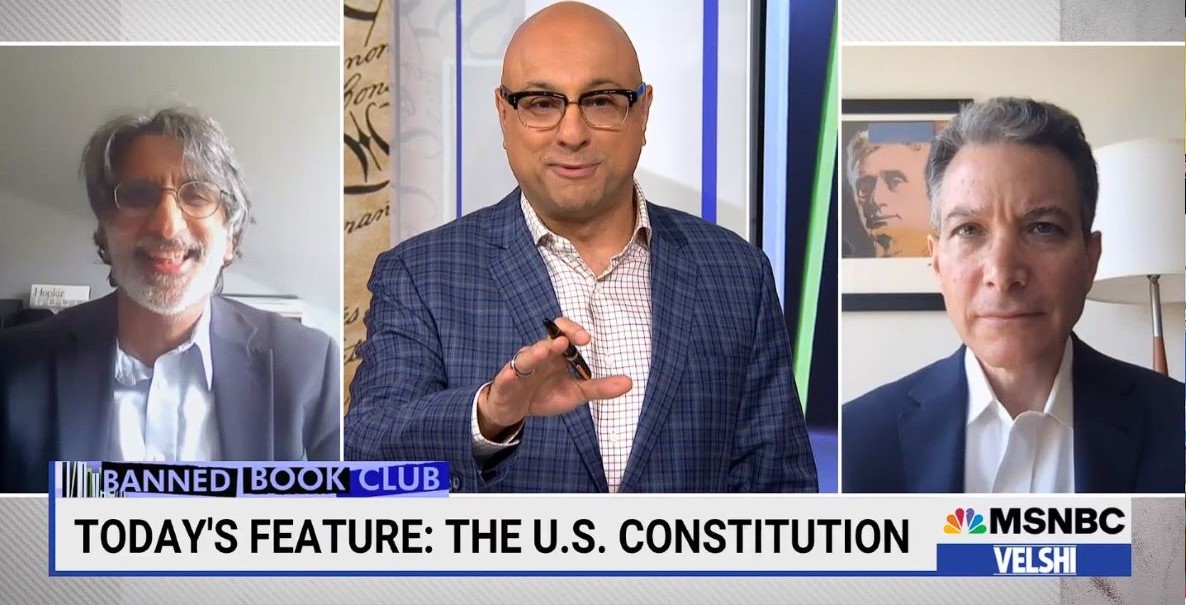In a “Special Edition” of the Banned Book Club, Ali Velshi speaks with Sterling Professor of Law and Political Science at Yale University Akhil Reed Amar and President and CEO of the National Constitution Center Jeffrey Rosen about the relativity of U.S. Constitution. Could section 3 of the 14th Amendment disallow former President Donald Trump from resuming elected office?
That section reads:
No person shall be a Senator or Representative in Congress, or elector of President and Vice-President, or hold any office, civil or military, under the United States, or under any State, who, having previously taken an oath, as a member of Congress, or as an officer of the United States, or as a member of any State legislature, or as an executive or judicial officer of any State, to support the Constitution of the United States, shall have engaged in insurrection or rebellion against the same, or given aid or comfort to the enemies thereof. But Congress may by a vote of two-thirds of each House, remove such disability.
Different scholars — even colleagues — interpret Section 3 differently, says Reed Amar, who suggests looking to state constitutions as expressions of the people’s will.
Velshi and Rosen point to the Second Amendment as an example of Constitutional disagreement. Some believe the amendment allows for self-protection in the form of any type of gun. Others believe the Founders would not have intended citizens to own certain types of modern weapons.
Coincidentally, over the weekend, former President Donald Trump took to Truth Social to call for “the termination of all rules, regulations, and articles, even those found in the Constitution,” based on his fraudulent claim that he won the 2020 election.
Listen to Ali’s interview with Akhil Reed Amar and Jeffrey Rosen:
Watch Velshi, Amar, and Rosen:
Velshi on banned books on MSNBC:
![]() MORE ON BANNED BOOKS FROM THE CITIZEN
MORE ON BANNED BOOKS FROM THE CITIZEN
Professors and authors Akhil Reed Amar and Jeffrey Rosen discuss interpreting and reinterpreting the US Constitution




